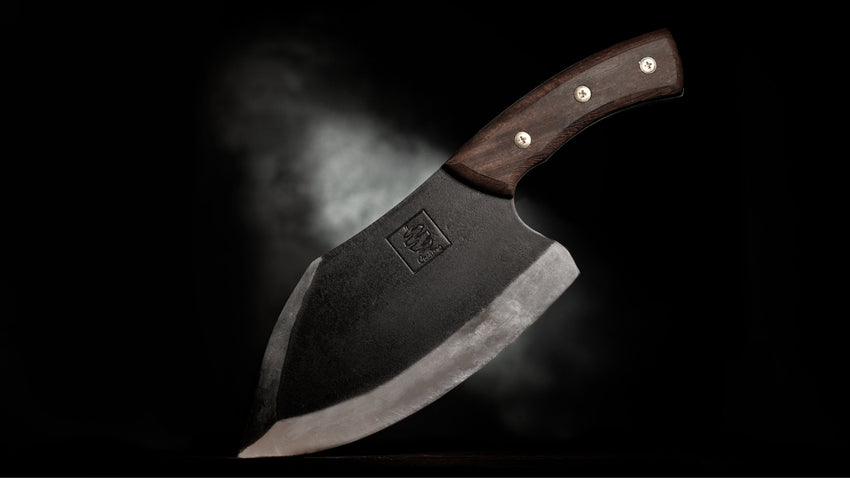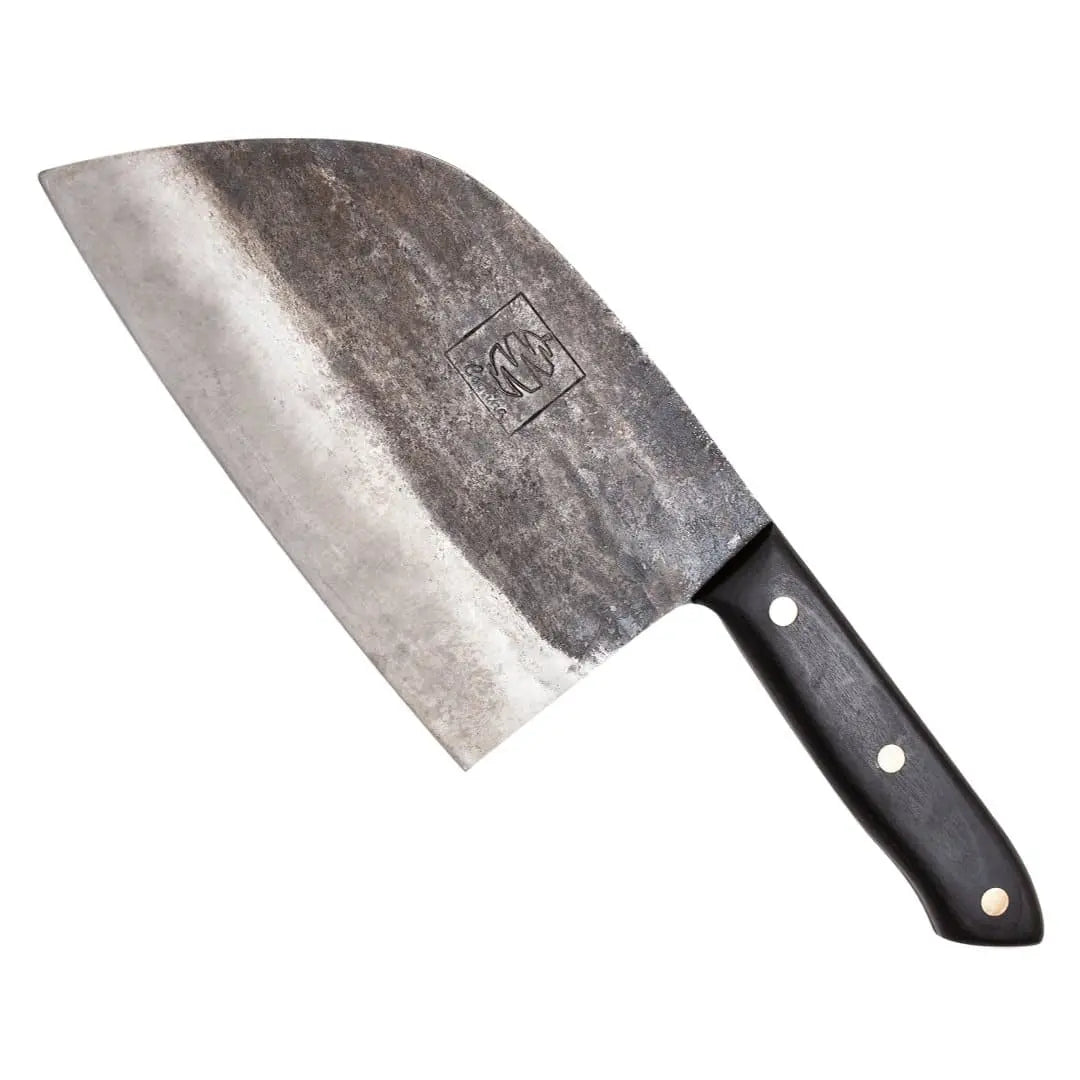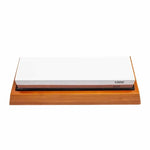How to make your kitchen knives last longer

You may believe that purchasing a high-quality kitchen knife is enough to ensure that you never need to buy another, but you must remember that anything you purchase, regardless of price, requires proper care.
Kitchen knives don't take a lot of attention, but they do require a few things in order to stay as sharp as the day you bought them. And we are going to break some tips down for you.
1. Cut on a wooden chopping board
Wood is considered as the best material for cutting boards for two main reasons. It doesn’t hurt knives making them blunt and it lasts longer. For the case that we are talking about today, the first reason is the most important one. Because knives and cutting boards always work together. They can either damage each other or help each other last longer together. 
Hard surfaces like ceramic tiles, glass, basalt, metal or marble chopping boards blunt knives' blades more quickly since they are harder than the knife itself. They may look cool but they are also not as sturdy as wooden cutting boards, which is terrible, especially when dealing with heavy-duty steel knives. They are just the worst for knives.
Make sure to also use separate cutting boards for cutting raw and cooked food. That will reduce the risk of causing bacteria.
2. Use different knives for different occasions
 This might seem obvious for some but many people have a favorite kitchen knife which they use on every given occasion. But, in fact, using it as less as possible will give it a longer life. If you constantly use one knife to cut everything you cook, that poor guy will get dull very quickly.
This might seem obvious for some but many people have a favorite kitchen knife which they use on every given occasion. But, in fact, using it as less as possible will give it a longer life. If you constantly use one knife to cut everything you cook, that poor guy will get dull very quickly.
You need to learn about the many different types of knives and purchase one for every occasion. That will actually save you money since you will not have to buy a new knife every couple of months. You will have a collection of different knives that will each serve their purpose giving each other a long time to exist and prosper in your kitchen.
Just in case if you need more information on different types of kitchen knives, we have a guide for you on how to start a collection of kitchen knives.
3. Wash immediately after using
Remember to never leave your knives to soak in the sink for too long, even just a few hours can be quite damaging for the blade. Water and moisture are the biggest causes of rust, so avoiding them as much as possible is the least you can do for your knives’ longevity. Soaking in the water will not only damage the steel blade of your kitchen knife but will also crack the handle if it is wooden.
All you have to do is just wash your knives immediately after you use them, it will only take a minute but will save your knife from getting rusty. But if you have done the mistake and your kitchen knife got rusty, here is a guide for you on how to clean rust from a kitchen knife.
4. Wash by hand
Avoid dishwashers at all costs especially if you are dealing with steel knives. Because dishwasher detergents are powerful enough to easily pit the steel of your knives. The jostling motion of the machine not only can dull and chip the blades but to also corrode the handles of your knives.
When washing your knife by hand, use only soft sponges while still ensuring the schmutz gets off. Never use abrasive sponges or scouring pumices as those can eventually dull a high-polished knife.
5. Dry immediately after washing
As we said before, water and moisture are the biggest causes of rust, so you definitely don’t want to leave water on your blade after you thoroughly washed it by hand. Take a dry kitchen towel and safely dry the blade of your knife by running a towel along the dull edge.
Make sure to always do this and never put the knife away while it is still wet. That will be the end of the knife’s polished blade.
6. Store properly
What you also don’t want, is storing your knives with other kitchen utensils. First of all, you might cut yourself while trying to get something else from the drawer, and your knives might get damaged by other kitchen utensils and tools. 
There are three ways to store your knives properly but the main point is separation:
- Store your kitchen knives in a separate drawer away from other cutlery and make sure that children are not able to open the drawer.
- In a knife holder block, preferably wooden to not damage the blades.
- On a magnetic knife rack high enough to be away from children.
7. Sharpen regularly
 No matter how well you take care of your knives, they will eventually get dull. You can’t do anything against that. The only thing that you can do is sharpening your knives regularly to give them a longer and sharper life.
No matter how well you take care of your knives, they will eventually get dull. You can’t do anything against that. The only thing that you can do is sharpening your knives regularly to give them a longer and sharper life.
All you have to do is get a pro knife sharpener if you don’t already own one. You don’t want to take your knife to a sharpening place every couple of months and spend more money on sharpening than you did on the knife itself. Sharpening kitchen knives at home is the right way to go.
Now, you might be thinking “but I don’t know how to sharpen kitchen knives”. Well, don’t you worry we have got you covered with that too: Read our guide on how to sharpen steel knives and become a pro.
Conclusion: After each use, spare a couple of minutes to take care of your kitchen knives and you will give them a much longer, much stronger and much sharper life.


































